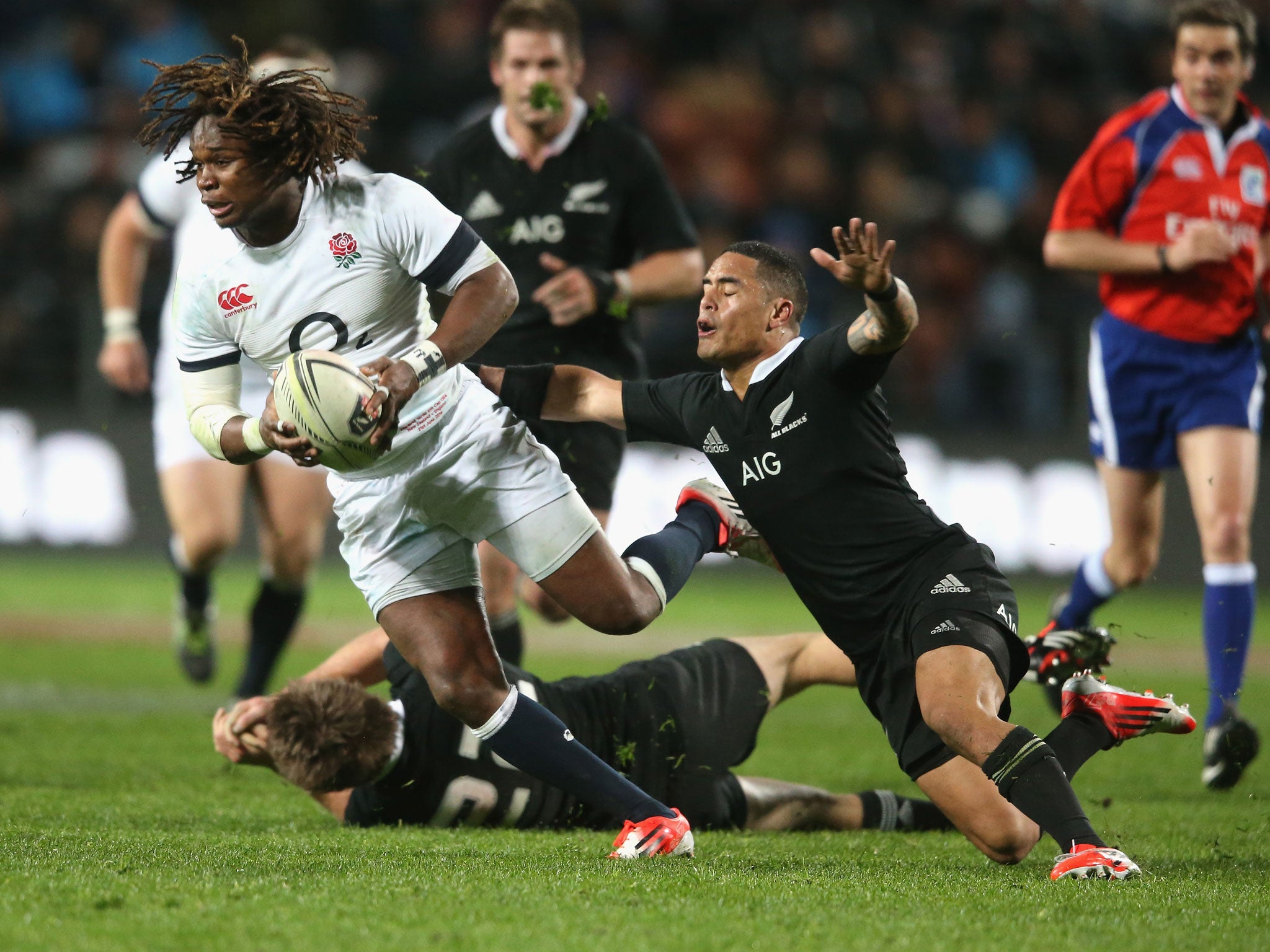Stuart Lancaster struggles to find cure for England's back trouble
England’s reasons to be cheerful undermined by defensive failings

Asked to identify a key difference between New Zealand and England, a harsh critic might say that while the All Blacks are in the business of breaking records, the red-rose hierarchy are sounding like a broken one.
The tourists emerged from a compelling series with grounds for optimism, but when it comes to the running sore of the back-line formation, the management are in “same old story” territory.
When the reigning world champions walked off at half-time with a three-Test blackwash already secured – by putting four tries past England in the space of 33 brutal minutes, they laid the firmest of foundations for a comprehensive 36-13 victory – Stuart Lancaster was angrier than at any point in his tenure as head coach. Sober analysis was ditched in favour of an “old-fashioned dressing-room rev-up”, with home truths flying in all directions.
Defensively speaking, his team had not so much crumbled as disappeared. If Kyle Eastmond, the over-promoted inside centre from Bath, went missing almost immediately, he was soon followed by the rest of the back division.
Some players, like the wing Marland Yarde and the scrum-half Ben Youngs, responded to the mass rollicking in positive fashion, putting themselves at the heart of a second-half performance immeasurably better than the first. Others, like Chris Ashton and Mike Brown, were so far off their game there was no hope of salvation. Their footsteps ran in only one direction.
There was not much to write home about up front, either: if Dylan Hartley, the best hooker in Europe on his day, had ever looked more insipid, no one could recall the occasion. But Lancaster is sitting on deep reserves of forward strength, especially as he is mining a fresh vein of tight-five specialists – the hooker Rob Webber, the tight-head prop Kieran Brookes, the lock Ed Slater – while waiting for Lions Test players as capable as Alex Corbisiero, Mako Vunipola, Tom Youngs and Dan Cole to rejoin the squad. He even has an open-side flanker capable of giving Chris Robshaw a run for his money, now that Matt Kvesic has re-emerged from the fog of despair at Gloucester.
But outside the pack, the coach is no closer to enlightenment than he was a year ago. Billy Twelvetrees is patently the most potent option in the ever-troublesome No 12 position – while Eastmond’s traumatic experience here gave Luther Burrell a long-awaited chance to play the role for 40 minutes, the Northampton man showed no obvious creative touches – yet for some strange reason, the coaching think-tank remains divided on the subject. As for the wing positions, the phrase “er, um” springs to mind.
The coach acknowledged as much yesterday after reviewing events at the Waikato Stadium and arriving at precisely the same conclusions he had reached while watching the game live. “When you look at the backs, there are more decisions to be made,” he said, adding: “There aren’t too many Julian Saveas running around, are there?” This reference to the magnificent wing from Wellington, whose hat-trick of tries on Saturday took his tally against England to eight in four games, was as much a cry of anguish as a statement of fact.
When Lancaster reflects further, this grisly 40-minute exercise in self-harm will seem more like an aberration than an accurate measure of his team’s place in the great scheme of things. On balance, their performances here were far better than those of any predecessors in the professional era, with the single exception of the 2003 World Cup-winning vintage.
But even though the All Blacks lorded it over England for only 60 of the 240 competitive minutes, they were far better at being better. At moments of ascendancy, their mesmerising rugby was too much for English flesh and blood – and if it also proves too much for the Wallabies in mid-August and they secure an unprecedented 18th straight Test victory, they will merit every accolade.
By then Lancaster will probably have named his new 33-man eite squad, from which a number of big names may well be missing. Ideally, the coach would prefer to wait until October but that is not a luxury available to him under the current agreement with the top-flight clubs.
Messed up by the All Blacks and messed around by the system? There’s a double whammy for you.
Subscribe to Independent Premium to bookmark this article
Want to bookmark your favourite articles and stories to read or reference later? Start your Independent Premium subscription today.

Join our commenting forum
Join thought-provoking conversations, follow other Independent readers and see their replies